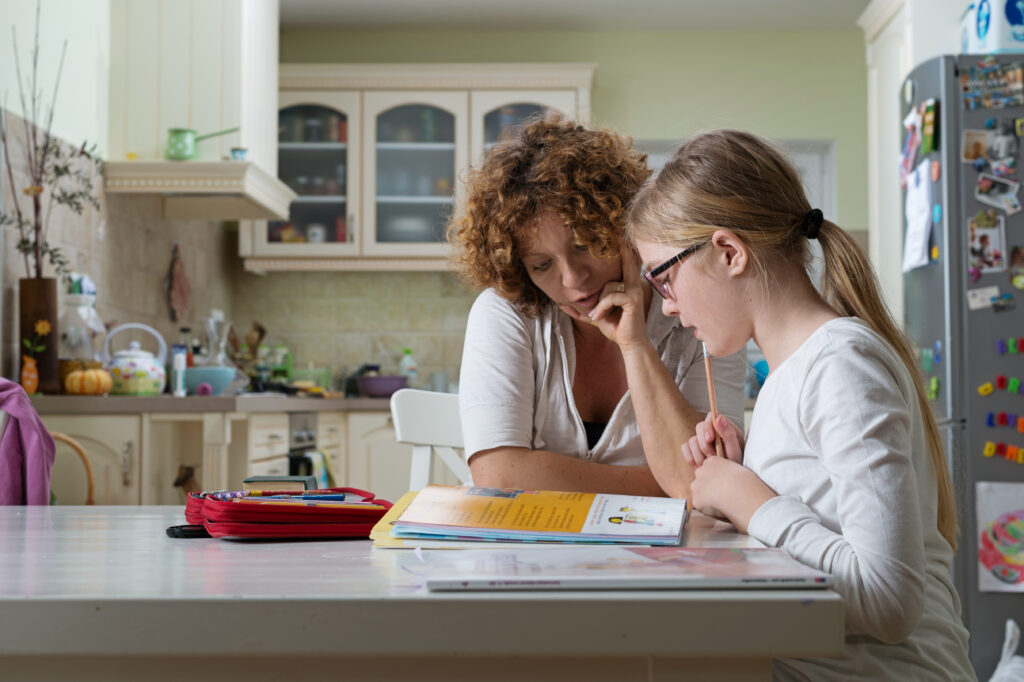How to Help Your Child Decompress During Stressful Times
January 16, 2025

Whether they’re in elementary or high school, kids today are under more pressure than ever, balancing academic expectations, social dynamics, extracurricular activities, and the everyday challenges of growing up. They also have a greater awareness of events and developments in the US and around the world. Add social media to the mix, and you have a recipe for a meltdown. It’s no wonder that these factors can lead to heightened stress, which, if not properly managed, can affect children’s emotional well-being, concentration, sleep, and even physical health. It’s crucial for parents, caregivers, and educators to help children find healthy ways to decompress, especially during times of high pressure.
When kids learn how to effectively manage and release stress, they not only feel better in the moment, but they’ll have valuable skills for coping with future challenges. De-stressing regularly can improve kids’ emotional regulation, boost their confidence, improve focus, boost creativity, and even strengthen their relationships with others. As your children return to school from winter break and dive back into homework, tests, clubs, sports, and finals, now is a great time to strategize ways to help them develop the ability to support themselves during stressful times.
In this post, we’ll explore a range of strategies to help school-age kids unwind and recharge, ensuring they have the tools they need to navigate life’s ups and downs with greater resilience and ease.
How to Recognize Stress in Children and Teens
Recognizing stress in children and teens can sometimes be tricky, as they may not always have the words to express what they’re feeling. However, there are a few common signs to watch for.
- Physically, a stressed child might experience headaches, stomachaches, or changes in sleep patterns, such as difficulty falling asleep or frequent waking during the night.
- Emotionally, they may seem more irritable, anxious, or withdrawn than usual, and their mood can shift rapidly.
- Changes in behavior are also key indicators—such as a drop in school performance, avoidance of social situations, or arguments with friends and/or family members.
When stressed, teens in particular may turn to unhealthy coping mechanisms, such as excessive screen time, or withdrawing from activities they once enjoyed. The first step in reducing stress is learning to recognize it in your child and being attentive to these signs; creating an open environment for communication is essential in helping kids and teens manage their stress before it becomes overwhelming.
Sleep Well: Lack of sleep, not enough sleep, or poor sleep habits is often associated with increased stress in kids and teens. The first step in helping them manage their stress and helping them decompress after a rough day is ensuring they get enough sleep. You may think your teen sleeps all the time, but it’s recommended that children ages 6 to 12 get 9-12 hours of sleep a night, and that teens get 8-10 hours. Help them create a screen-free routine before bed that supports them winding down for the evening. Creating regular sleep and wake times that align with their needs can help make quality sleep easier to come by.
Add time for fun: These days, children’s schedules are more packed than ever—but it’s still important for them to make time for fun, too! Allow young children unstructured playtime and encourage teens to pursue their interests, like sports, art, reading, or nature. The most important aspect of this unstructured time is that it remains screen-free. Social media and evening screen time have been shown to have negative effects on mental health and sleep patterns. Encourage kids to work with their hands and explore different pastimes.

Make time for peace & quiet: Just as fun is important to mental health, so too is quiet time. While some kids may thrive in busy environments and with busy schedules, you may have a child who needs their alone time or solitude, so make sure that it’s built into their schedule. Mindfulness has been shown to significantly decrease stress in teens and young adults, and things like journaling, coloring, and reading have similar effects.
Get outside: “Time spent in nature is never wasted.” Studies have found that people who live in areas with lots of greenspace experience less depression, anxiety, and stress—and we have plenty of greenspace here in Maine! Encourage your children or teens to get outside and reap the benefits of fresh air. They’ll likely have the added benefits of exercise, if they choose to play or do a sport; creativity, if they choose to make something, like a fort; and mindfulness, if they choose to simply take a walk or observe the nature around them.

Be a Role Model: As adults, we’re certainly not immune to stress. But parents play a crucial role in teaching their children how to manage stress, and one of the most powerful ways they can do this is by modeling healthy coping skills themselves. Kids are keen observers, learning by watching how the adults around them respond to stressful times and setbacks. When parents demonstrate calmness, problem-solving, and resilience during these situations, children are more likely to adopt similar strategies in their own lives. Whether adults choose to take deep breaths to stay calm, set aside time for relaxation, or work through problems openly or in a journal, showing that stress is a natural part of life that can be managed in healthy ways sets a positive example. On the flip side, if parents regularly use unhealthy coping mechanisms, such as withdrawing, snapping, or resorting to avoidance behaviors, children may mimic those patterns, making it harder for them to navigate stress effectively now and later in life. By consistently modeling good emotional regulation and self-care, parents teach their children not just how to cope in the moment, but how to build resilience for the long term.
Remember: the goal isn’t no stress. The goal is teaching and modeling healthy ways to deal with stress!

 BACK
BACK